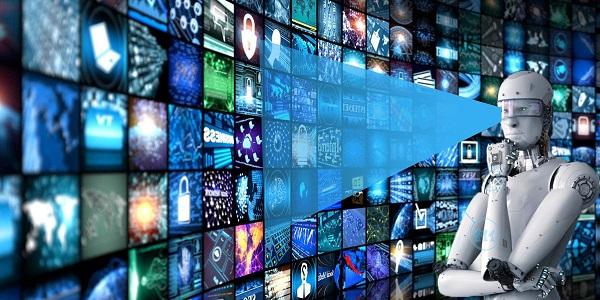In recent years, artificial intelligence (AI) has emerged as a groundbreaking technology, revolutionizing various industries, including entertainment. From movies to music and beyond, AI is transforming the way we experience and interact with entertainment content. This article delves into the profound impact of AI in the entertainment industry and how it is reshaping our entertainment experiences.
Table of Contents
Introduction: The Rise of AI in Entertainment
In the past few years, the integration of artificial intelligence has brought about a remarkable metamorphosis in the entertainment industry. AI technologies are being employed to improve the production process, enhance content creation, and personalize user experiences. This has led to a paradigm shift in how we consume and engage with movies, music, and other forms of entertainment.

AI in Movie Production
AI is revolutionizing the movie production process, enabling filmmakers to streamline various aspects, including scriptwriting, casting, visual effects, and post-production. Natural language processing algorithms analyze vast amounts of data to generate engaging scripts and identify potential actors suitable for specific roles. Additionally, AI-powered visual effects systems provide realistic and immersive scenes that captivate the audience.

AI in Music Creation and Recommendation
AI is making significant strides in the music industry, both in terms of creation and recommendation. With the help of AI algorithms, musicians can compose new melodies, harmonies, and even generate lyrics. These AI-generated compositions can inspire artists and fuel their creativity. Moreover, AI-powered recommendation systems analyze user preferences and behavior to suggest personalized playlists, introducing listeners to new music that aligns with their tastes.

AI in Gaming: Enhancing Immersion and Interaction
The gaming industry has been greatly influenced by AI, enhancing both the immersion and interaction in games. AI algorithms enable the development of realistic virtual worlds, intelligent non-player characters (NPCs), and adaptive gameplay. This creates a more immersive gaming experience where players can engage with dynamic environments and encounter NPCs that exhibit human-like behaviors.

AI in Personalized Entertainment Experiences
AI has revolutionized personalized entertainment experiences by tailoring content to individual preferences. Streaming platforms leverage AI algorithms to analyze user data and provide personalized recommendations based on their viewing history, genre preferences, and ratings. This ensures that users are presented with content that aligns with their interests, enhancing their overall entertainment experience.

AI and Virtual Reality (VR)
The combination of AI and virtual reality (VR) has opened up new possibilities in the entertainment industry. AI-powered VR systems can generate realistic and interactive virtual environments that respond to user actions and adapt in real-time. This technology allows users to immerse themselves in virtual worlds, creating unique and unforgettable experiences.

AI in Content Curation and Recommendation Systems
Content curation and recommendation systems are integral to the entertainment industry, and AI plays a pivotal role in enhancing their effectiveness. AI algorithms analyze vast amounts of data, including user preferences, browsing history, and social interactions, to curate and recommend content tailored to each individual. This helps users discover new movies, music, and other forms of entertainment that they are likely to enjoy.

The Future of AI in Entertainment
As AI continues to advance, the future of AI in the entertainment industry looks incredibly promising. Here are a few key areas where AI is expected to make significant contributions:
AI-Generated Content:
AI has the potential to generate entirely new content, blurring the lines between human and AI-created works. We can expect AI to create compelling scripts, music compositions, and even virtual characters that possess unique personalities and storylines.
Enhanced Virtual Reality Experiences:
With AI’s ability to analyze user behavior and preferences, VR experiences will become even more immersive and personalized. AI algorithms can adapt the virtual environment in real-time, responding to user inputs and creating a truly interactive and tailored experience.
Real-Time Language Translation:
Language barriers often hinder global entertainment experiences. However, AI-powered real-time language translation can bridge these gaps. Imagine enjoying a foreign film and effortlessly understanding the dialogues in your native language.
Advanced Data Analytics:
AI’s data analytics capabilities will continue to shape the entertainment industry. Studios and streaming platforms can leverage AI to gain deep insights into viewer preferences, trends, and engagement patterns. This data-driven approach can inform decision-making processes and help create content that resonates with audiences.
Deepfake Technology:
While deepfake technology has garnered both fascination and concern, it undeniably offers intriguing possibilities in the entertainment industry. AI-powered deepfake algorithms can seamlessly superimpose actors’ faces onto other characters or recreate iconic performances, providing new avenues for storytelling and visual effects.
In conclusion, AI is revolutionizing the entertainment industry, transforming the way we experience movies, music, and more. From streamlined movie production processes to personalized content recommendations and immersive VR experiences, AI’s impact is undeniable. As technology continues to advance, we can look forward to a future where AI seamlessly integrates with our entertainment, enriching our experiences in ways we never thought possible.
FAQs
- How is AI transforming the movie production process?
AI streamlines various aspects of movie production, including scriptwriting, casting, and visual effects. It helps generate engaging scripts and identify suitable actors for specific roles. AI-powered visual effects systems create realistic and immersive scenes. - Can AI create original music?
Yes, AI algorithms can compose melodies, harmonies, and even generate lyrics. These AI-generated compositions can inspire artists and enhance the music creation process. - How does AI personalize entertainment experiences?
AI analyzes user preferences and behavior to provide personalized recommendations for movies, music, and other forms of entertainment. This ensures that users are presented with content that aligns with their interests and enhances their overall experience. - What is the future of AI in virtual reality?
AI’s future in virtual reality involves creating more immersive and interactive experiences. AI algorithms can adapt virtual environments in real-time, responding to user inputs and providing personalized and engaging VR experiences. - What are the ethical concerns related to AI in entertainment?
Ethical concerns include the potential misuse of deepfake technology and issues of data privacy and security. It is important to ensure responsible use of AI in the entertainment industry and address these concerns proactively.

